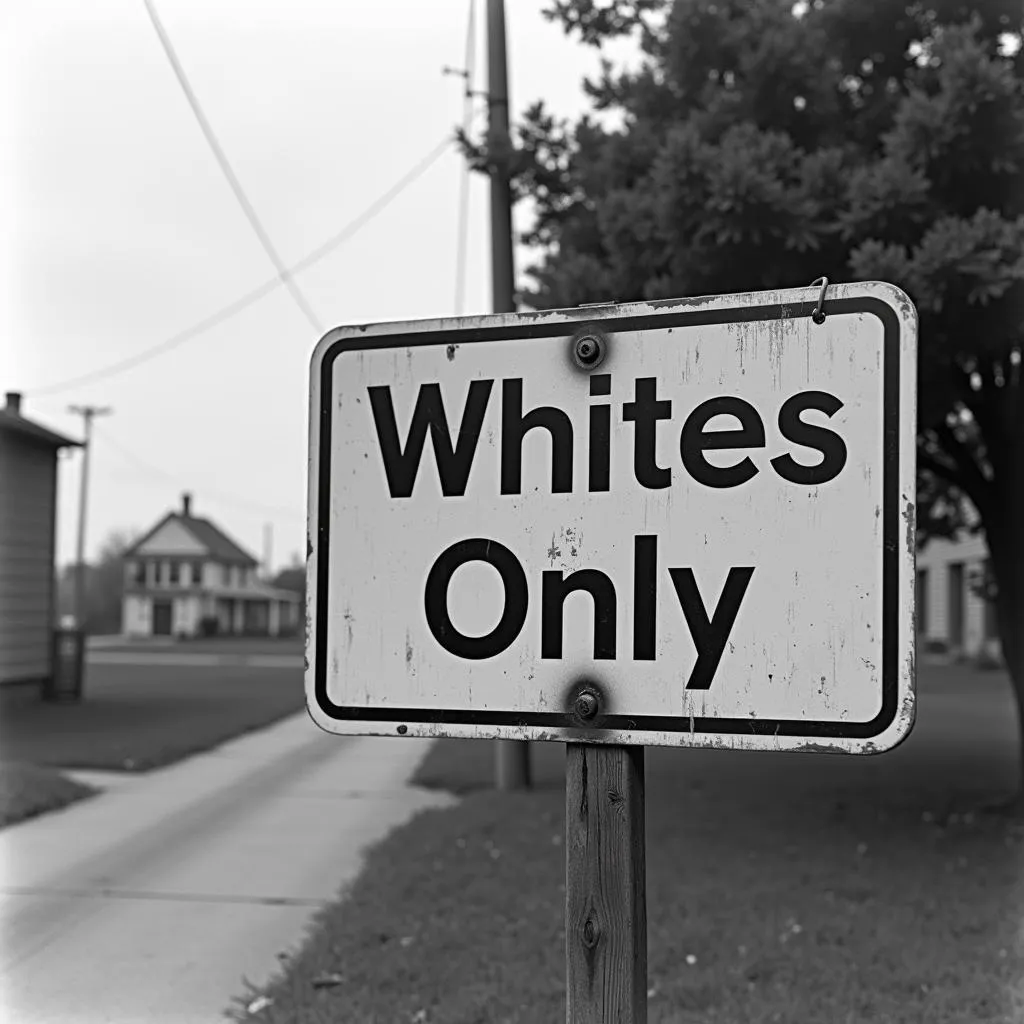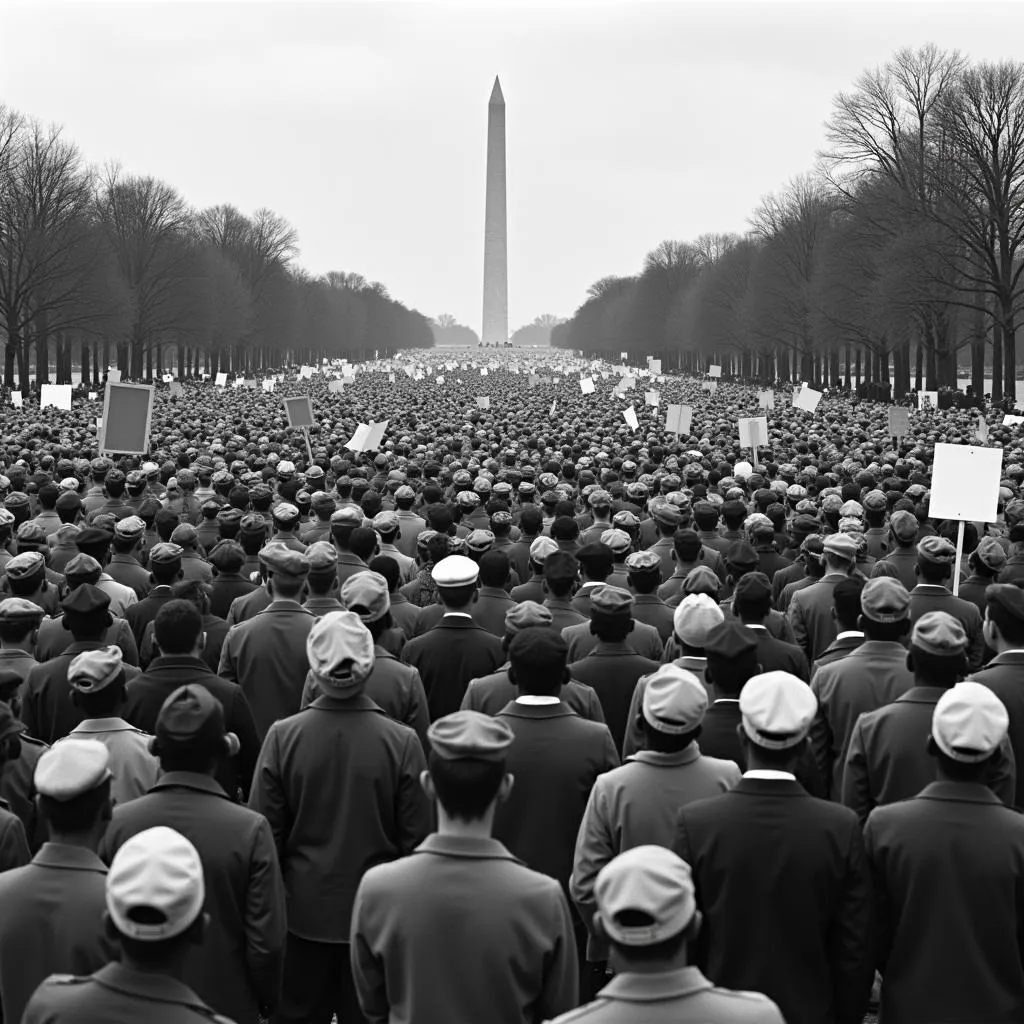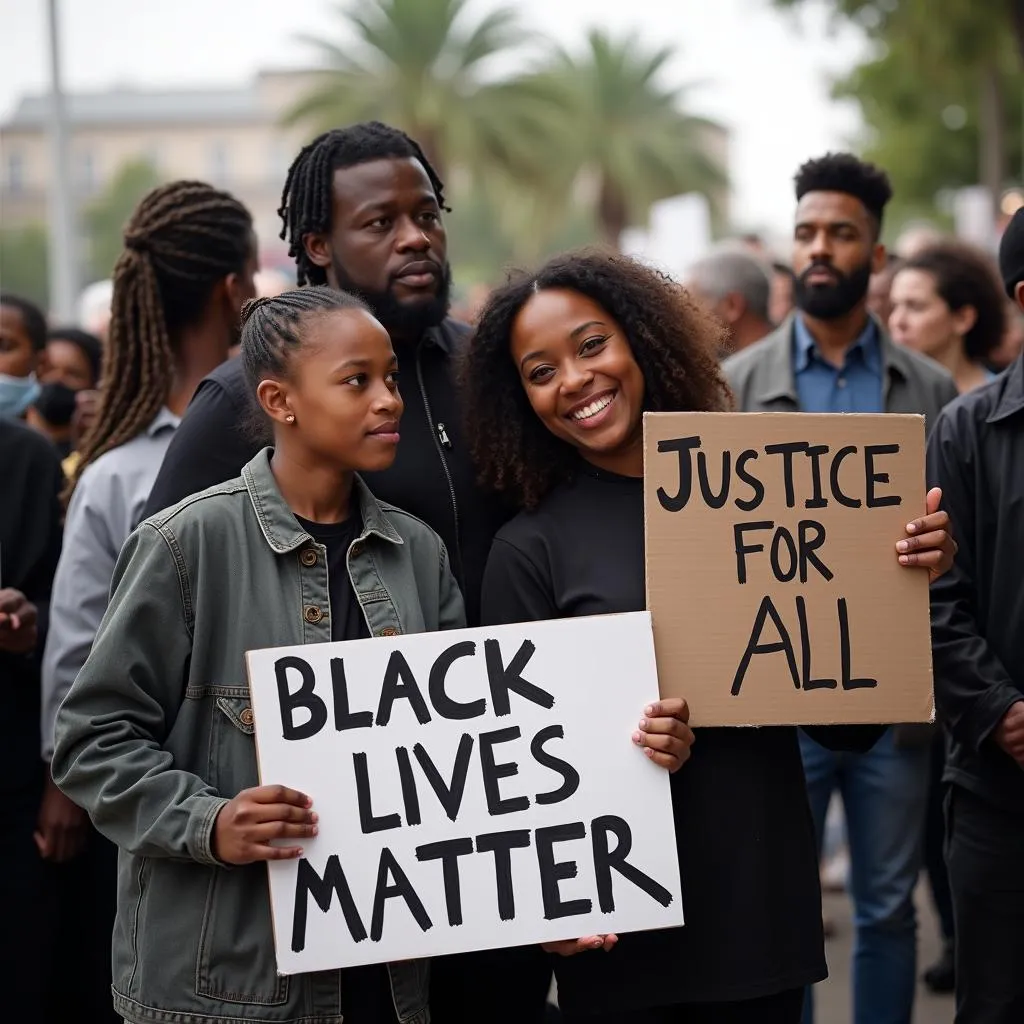African American Discrimination: A History of Injustice
The experience of African Americans has been deeply shaped by discrimination. From the era of slavery to the present day, systemic racism and prejudice have created significant barriers to equality for Black Americans. This history of discrimination is evident in various aspects of life, including education, housing, employment, and the criminal justice system.
The Legacy of Slavery and Segregation
The institution of slavery, which lasted for over two centuries, laid the foundation for systemic racism in the United States. Black people were legally considered property, denied basic human rights, and subjected to brutal treatment. After the Civil War, while slavery was abolished, a new system of segregation emerged, known as Jim Crow. These laws enforced racial segregation in all public spaces, further marginalizing African Americans and denying them equal opportunities.
 Jim Crow Segregation Sign
Jim Crow Segregation Sign
The Civil Rights Movement and Beyond
The mid-20th century witnessed the rise of the Civil Rights Movement, a powerful social and political movement that fought tirelessly to dismantle segregation and achieve equal rights for African Americans. Figures like Martin Luther King Jr., Rosa Parks, and Malcolm X became symbols of the struggle for racial justice. The movement led to significant legal victories, including the Civil Rights Act of 1964 and the Voting Rights Act of 1965, which outlawed discrimination based on race and removed barriers to voting, respectively.
 Civil Rights March on Washington D.C.
Civil Rights March on Washington D.C.
The Persistence of Systemic Racism
While the Civil Rights Movement brought about substantial progress, the fight against discrimination is far from over. Systemic racism, deeply ingrained in institutions and policies, continues to permeate American society, leading to disparities in various sectors:
- Education: African American students often attend underfunded schools, have less access to experienced teachers, and face higher disciplinary rates than their white peers.
- Housing: Discriminatory housing practices, such as redlining and lending discrimination, have historically limited access to safe and affordable housing for Black families, contributing to wealth disparities.
- Employment: Black Americans experience higher unemployment rates, lower wages, and fewer opportunities for career advancement compared to white Americans, highlighting persistent barriers in the workplace.
Mass Incarceration and the Criminal Justice System
The American criminal justice system has faced significant criticism for its disproportionate impact on African Americans. Black individuals are more likely to be stopped, searched, arrested, and incarcerated than white individuals, even for similar offenses. Sentencing disparities and racial bias within the justice system perpetuate a cycle of disadvantage.
 African American Family Protesting Police Brutality
African American Family Protesting Police Brutality
Conclusion
African American Discrimination remains a pressing issue with deep historical roots. From slavery and segregation to the ongoing struggles against systemic racism, the fight for equality continues. Addressing these disparities requires acknowledging the lasting impact of historical injustices, implementing policies that promote equity, and working towards a society where everyone has an equal opportunity to thrive.
FAQs
What are some examples of African American discrimination today?
Examples include racial profiling, housing discrimination, workplace bias, and disparities in healthcare and education.
How can I be an ally in the fight against African American discrimination?
Educate yourself on the history of racism, challenge your own biases, speak out against injustice, and support organizations working for racial justice.
What is the difference between individual racism and systemic racism?
Individual racism refers to prejudiced beliefs and discriminatory actions of individuals, while systemic racism is embedded in institutions and policies, perpetuating inequalities on a larger scale.




